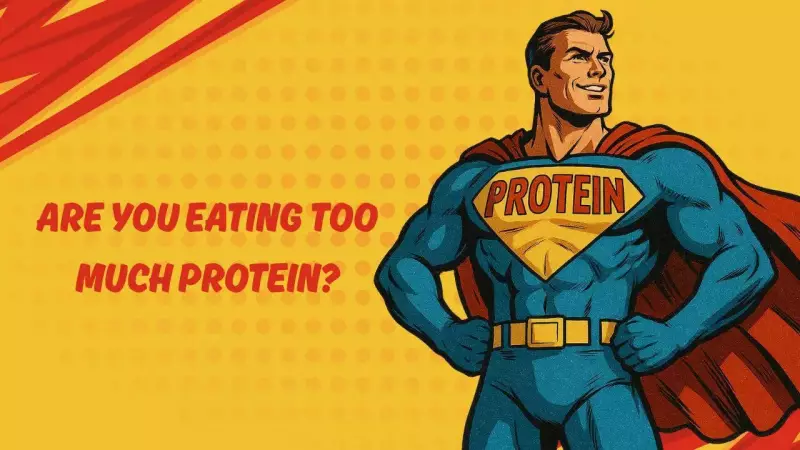
Protein has become the undisputed king of nutrients in today's health-conscious world, with fitness enthusiasts and diet followers loading up on shakes, bars, and supplements. But here's the burning question: can you actually have too much of this good thing?
The Protein Paradox: More Isn't Always Better
While protein is essential for muscle building, tissue repair, and overall body function, crossing the invisible line of moderation can backfire spectacularly. Nutrition experts warn that excessive protein consumption can trigger a cascade of health issues that might surprise you.
What Happens When You Cross The Protein Limit?
Your body has a threshold for how much protein it can effectively utilize. When you consistently exceed this limit, you might experience:
- Kidney strain as they work overtime to process excess nitrogen
- Digestive discomfort including bloating and constipation
- Unexpected weight gain from surplus calories
- Nutrient deficiencies from imbalanced diet patterns
- Dehydration as kidneys require more water to flush out byproducts
The Golden Number: How Much Protein Do You Really Need?
The magic number isn't one-size-fits-all. Your ideal protein intake depends on several factors:
- Activity level: Athletes and highly active individuals need more
- Age: Protein requirements change through life stages
- Health status: Certain conditions may increase or decrease needs
- Body composition goals: Muscle building versus maintenance
The General Rule of Thumb
For most healthy adults, nutritionists recommend 0.8 to 1.2 grams of protein per kilogram of body weight. This means if you weigh 70 kg, your daily protein requirement ranges between 56-84 grams. Endurance athletes or those in intense training might need up to 1.6-1.8 grams per kg.
Spotting The Red Flags: Are You Overdoing It?
Your body sends clear signals when you're pushing the protein envelope too far. Watch out for these warning signs:
- Persistent digestive issues despite healthy eating
- Unexplained fatigue or brain fog
- Increased thirst and frequent urination
- Unexplained weight plateau or gain
- Bad breath that brushing doesn't solve
The Balanced Approach: Quality Over Quantity
Instead of obsessing over protein numbers, focus on balanced nutrition. Incorporate diverse protein sources including:
- Plant-based options like lentils, chickpeas, and soy
- Lean animal proteins including chicken, fish, and eggs
- Dairy products like yogurt and paneer
- Nuts and seeds for healthy fats alongside protein
Remember, protein is just one piece of the nutritional puzzle. A diet rich in fruits, vegetables, whole grains, and healthy fats creates the foundation for lasting health and vitality.
The bottom line: Protein is your friend, but like any good relationship, boundaries are essential. Listen to your body, consult with nutrition experts, and find the balance that works for your unique needs and lifestyle.





